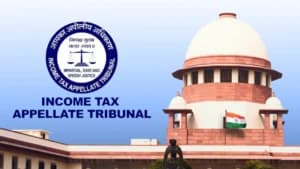The Supreme Court of India, in a judgment delivered by Justice Vikram Nath and Justice Sandeep Mehta, has dissolved the marriage of A. Ranjithkumar and E. Kavitha, ending a 15-year-long legal dispute. The decision came after the Court found no possibility of reconciliation between the estranged couple, who have been living separately since 2010.
The couple married on 15 February 2009 and later moved to the United States, where the husband was employed. Their son was born in April 2010. In September 2012, the husband filed for divorce under Sections 13(1)(ia) and (ib) of the Hindu Marriage Act, citing cruelty and adultery. The Family Court granted divorce on the ground of cruelty in October 2016 but rejected the adultery claim.
Read also:- Delhi High Court Orders Protection for Inter-Faith Couple Facing Threats from Family
The wife challenged the decree in the Madras High Court, which in August 2018 set aside the divorce, noting that the main allegation - rude remarks by her father - could not be attributed to her. While the appeal was pending, the husband remarried in March 2017.
The Supreme Court initially attempted mediation, but it failed. Observing that the marriage had "irretrievably broken down" and that both parties showed no interest in resolving differences, the bench invoked Article 142 of the Constitution to dissolve the marriage.
"They have been living separately for nearly 15 years. There is no vestige of matrimonial relationship between them," the Court noted.
Read also:- Madras High Court Frees Lawyers and Law Students Detained in Chennai Sanitary Workers' Protest Case
In addition, the Court ordered the husband to pay ₹1.25 crore as a one-time permanent alimony to the wife and their son, citing his lack of financial support over the years. The payment will be made in five equal quarterly instalments of ₹25 lakh each, starting 15 September 2025 and ending 15 September 2026.
The Court warned that if any instalment is missed, the order will be recalled and the amount already paid will be forfeited. The impugned order of the Madras High Court has been set aside, and the appeal has been allowed.
Case Title:- A. Ranjithkumar vs. E. Kavitha















